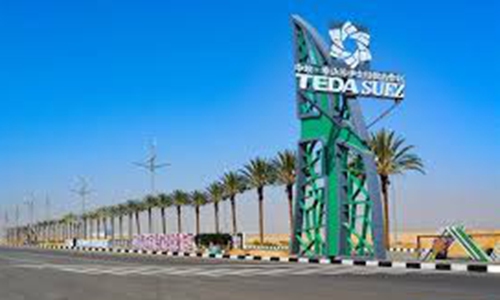HOME >> CHINA
Interview: China-Egypt ties solid with brilliant prospects: Egyptian official
Source:Xinhua Published: 2019/12/31 13:18:17

Photo: Xinhua
Hani Azer, a member of the advisory board of Egyptian President Abdel-Fattah al-Sisi, said the relations between Egypt and China are very strong and have excellent prospects.
"The bilateral relations between the two countries are solid, and there is a mutual coordination in many important fields," Azer told Xinhua in a recent interview.
He added that China has large investments in Egypt and is already implementing mega projects in several fields, such as railways, energy, construction and infrastructure.
"We welcome Chinese investments in Egypt because they reflect confidence in President Sisi's policy, in security and stability in Egypt, and in the ongoing industrial and economic development in the country," said Azer, who is a world-renowned tunnels expert.
By 2018, the total Chinese investments in Egypt exceeded seven billion US dollars, providing about 30,000 direct job opportunities to Egyptians, according to official Chinese statistics.
The trade exchange between China and Egypt hit a record high of 13.87 billion dollars in 2018 when Egyptian exports to China rose to 1.8 billion dollars.
Tianjin Economic-Technological Development Area (TEDA), a Chinese industrial developer operating in Egypt's vital Suez Canal economic zone, has altogether 84 enterprises, including 42 manufacturing companies, and has attracted investment worth more than one billion dollars.
Meanwhile, Azer stressed that the program implemented by Egypt to develop the country's infrastructure is very important.
"For example, after the World War II, countries such as Germany started to rebuild itself by building new infrastructures, which helped the country much to reach its current economic status," the Egyptian engineer said.
He added that it is surprising that rebuilding Egypt's infrastructure is done with very high quality and excellent speed, noting that "this only happens in China."
Egypt is implementing the largest plan to construct more than 11,000 kilometers of roads, in addition to building bridges, tunnels, and the development of the entire rail network.
Supported by a 12-billion-dollar loan from the International Monetary Fund, Egypt started a three-year austerity-based economic reform program in November 2016, including local currency devaluation, fuel and energy subsidy cuts and introduction of value-added tax.
Despite consequent price hikes, the reform program achieved positive results that reflected on the country's growth rate, which hit 5.6 percent during the 2018-19 fiscal year.
RELATED ARTICLES:
Posted in: DIPLOMACY,CHINA FOCUS